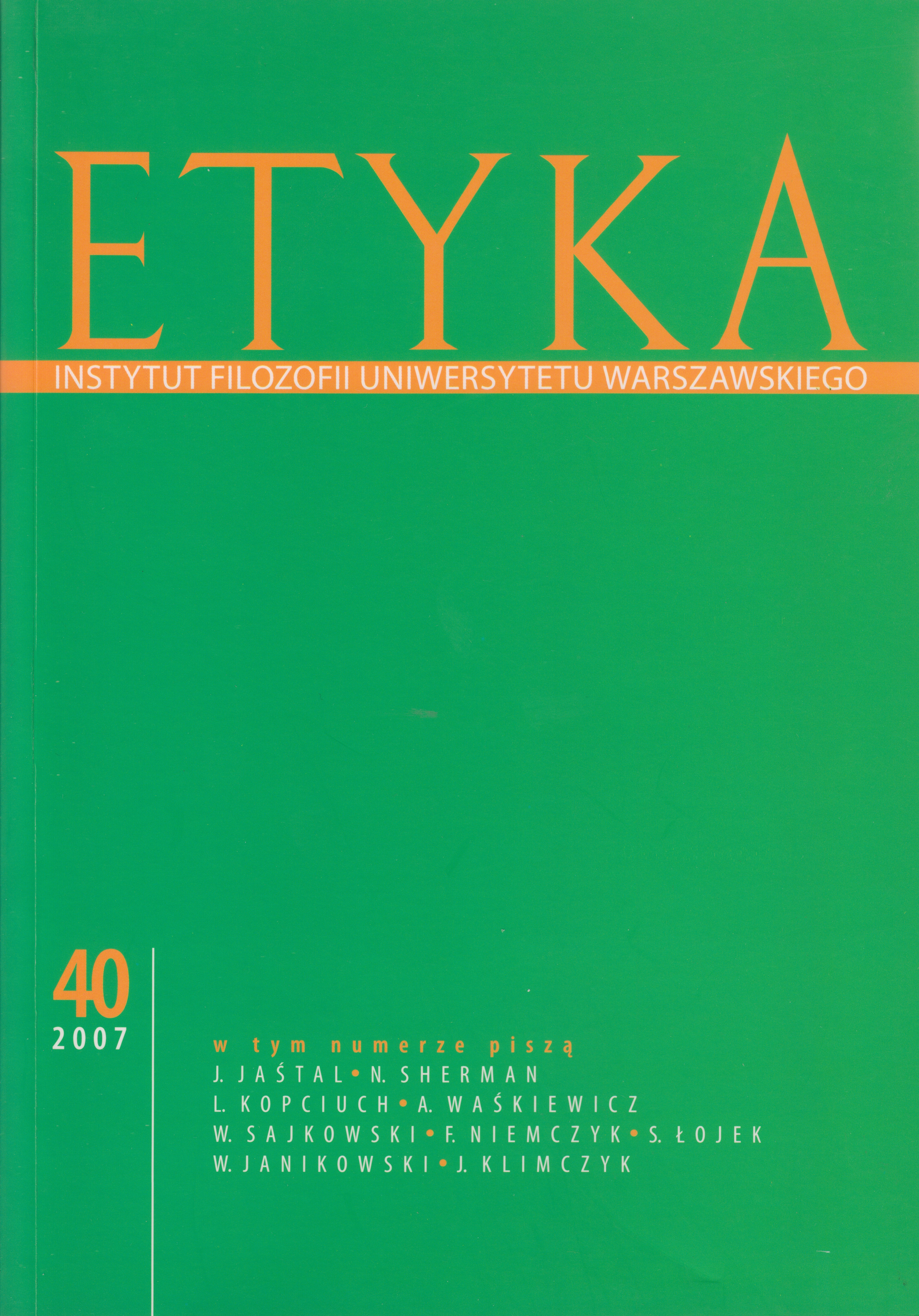Kant, Judgment and the Social Contract Tradition
DOI:
https://doi.org/10.14394/etyka.433Abstract
Kant is sometimes seen as “the most adequate of the Social Contract theorists”. Although he seems to provide evidence for this view, it is not clear what exactly the role and meaning of consent in his theory is. I argue that for Kant the social contract is not a device of justification but an element in the process of judgment. Its role is to help us see if a proposed public law is rightful. The main line of my argument is as follows. First, I show the differences between Kant’s use of the idea of the social contract and the use of it made by the authors of the Social Contract tradition. Secondly, I show that Kant did not need any theory of the social contract because for him the social contract is a means of “translation” of the abstract requirements of the Categorical Imperative into specific demands of justice for a particular political community. The conclusion is somewhat paradoxical: if Kant was a social contract theorist (and I believe he was), he was one of a peculiar kind. His use of the social contract articulates the conditions which make thinking in terms of “possible consent” a theoretically fruitful and inspiring enterprise.Downloads
Downloads
Published
How to Cite
Issue
Section
License
Works published in ETYKA are available under the Creative Commons Attribution 4.0 International Licence (CC BY 4.0), which entails acknowledgement of authorship. Under this licence, Authors keep their copyrights and agree that their works can be used again legally for any purpose, including commercial ones, without the need to obtain previous consent of the Author or publisher. The articles can be downloaded, printed, copied and disseminated; under the condition that the authorship is indicated accordingly, together with the place of original publication. The Authors preserve their copyrights to the above-mentioned works without any limitation whatsoever.



